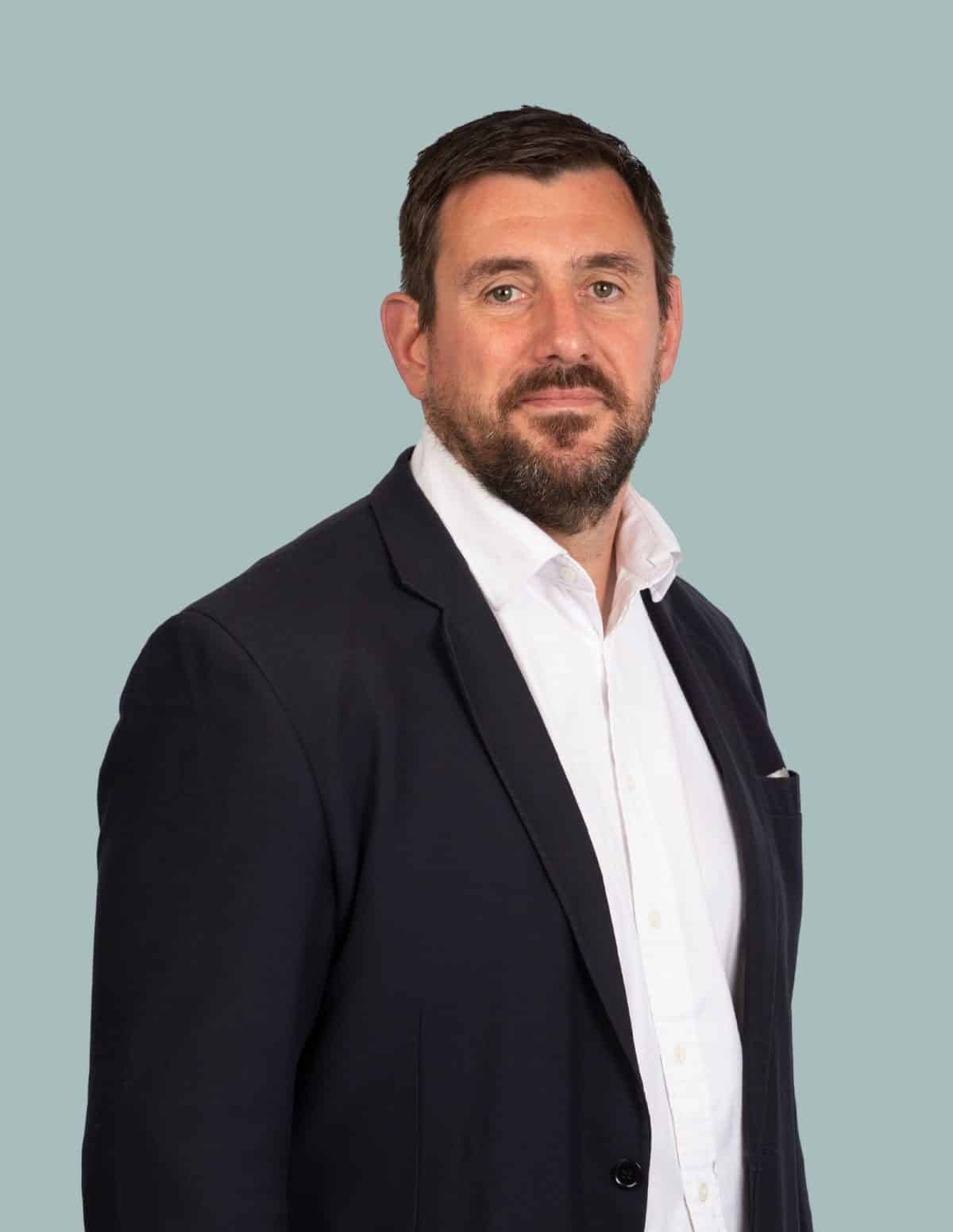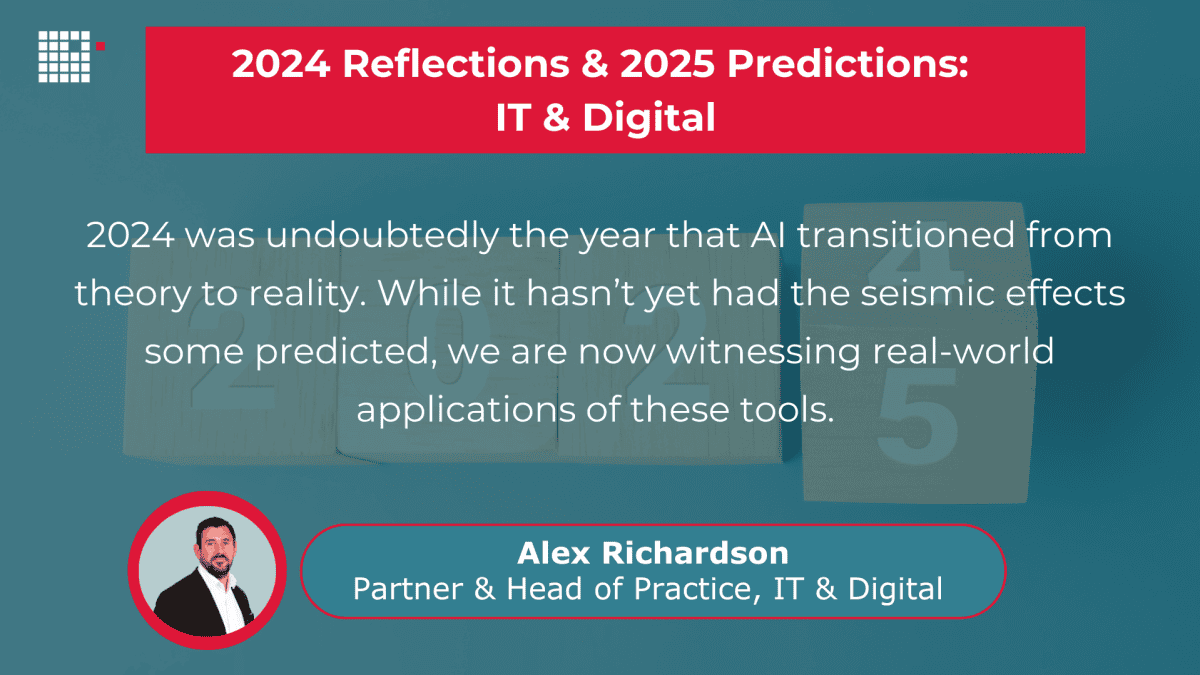Transformational Leaders: Mark Pearson, Business Transformation & IT Director – James Hall and Co
In the latest instalment of our ‘Transformational Leaders’ series, Alex Richardson, Principal Consultant in Berwick Partners’ IT & Digital Leadership practice, talks to Mark Pearson about his first few months with James Hall and Co, the retail and distribution network behind the Spar brand of convenience stores in the North of England.
You’ve been with James Hall for around eight months now. We caught up briefly at the start of lockdown, and as as a major food manufacturer, distributor and retailer, I think it’s fair to say you were stretched pretty thin at that point. How has lockdown affected the business?
We initially saw a huge spike in demand. In essence, we had the equivalent of Christmas levels of demand, but every day! No organisation has the inbuilt capacity to handle that without the usual annual pre-planning. In addition, we were having to manage losing staff with symptoms to self-isolation and even though we brought in new people to cover, they didn’t know our business processes to begin with, so we were constantly training.
In the end, due to the national limitations on certain product lines we had to ration orders to our customer base and be clever about how we managed the business. Even after the initial ‘panic buying’ subsided, we are still trading up significantly higher on a like for like basis which mirrors the trends in convenience retail across the UK.
In terms of IT, we are massively reliant on systems 24×7 and they just needed to work. Happily, both the systems and the team have been fantastic in adapting and delivering the critical technology required during this pressured time for the business. I can’t speak highly enough of them in the way they stepped up to the plate.
I know you had some plans for the future, does the situation mean things have gone on hold?
On the contrary, the business is committed to a leading digital transformation programme. We have a comprehensive vision of where we want to get to now. We are talking to the various vendors and third parties about who we will partner with to help us deliver it.
Over the next three to four years, we will introduce a number of new technologies such as CRM; at present we have people on the road with no meaningful access to technology. We want to introduce better systems across our manufacturing and food processing plants. We want to run a full core business system upgrade, or replacement and we want to introduce specialised software throughout the supply chain to give us a single view from factory to shelf. In addition, we want to introduce integrated digital collaboration tools like Office 365 for videoconferencing, instant messaging and document sharing capabilities. We will also use this period to look hard at our business and retail processes, to streamline those and make us a slicker, and more efficient, business.
That sounds like a significant change, how is the business feeling about this?
It is significant, and it will also be a change to how IT is perceived. Here, IT used to be seen as a reactive and transactional team who just fixed stuff. We are using this period as a catalyst to have better, more future focused conversations with colleagues and to reposition what IT is, and can be, for the organisation. I must say, I have been given impressive backing by the board and shareholders. Clearly this is new for everybody, but they are certainly bought into the journey and are giving me the sponsorship I need to deliver this change – so far at least!
What will this mean for the IT team itself?
The IT team are technically excellent and are strong at delivering our current systems landscape but, as the future operating model materialises, we will need to evolve what we do. The team will need to adapt. They will need to adopt new skills such as the contemporary professional IT disciplines. Things like service and vendor management plus they will need to become more customer facing in terms of helping the business to articulate and interpret its demands. We will also need to get better at delivering change through strong programme management and take a more realistic approach to prioritising, what will be, a huge portfolio of change.
The team are getting on board with this and learning to work with me and my people management style. I probably bring more of a structured approach than they are used to. I like to set objectives which are linked to the business and I have introduced much more communication around strategy than before. Some people will buy into the changes and start to thrive, others are slightly more hesitant. Overall, I’m confident that we have a cohort of talented people here who will see the value that this type of a ‘once in a career’ transformation, could have for them.
Mark, that sounds fantastic. I wish you good luck over the coming year and hope that we continue to see growth for the business.
For more information about the Berwick Partners IT & Digital Leadership Practice, please contact Alex Richardson.






